In June 1788 the ninth state ratified the Constitution, which gave Congress the power "To establish Post Offices and post Roads" (Article I, Section 8). The earliest known African Americans employed in the United States mail service were enslaved people who worked for mail transportation contractors. However, in 1802, fearing a slave revolt like that occurring in the land that would become Haiti, Congress declared that only free white men were permitted to carry the mail. This prohibition endured until March 3, 1865, when Congress directed that “no person, by reason of color, shall be disqualified from employment in carrying the mails” (13 Stat. 515).
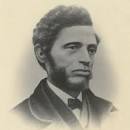
In 1863, William Cooper Nell (1816-1874) was appointed a clerk at the Boston, Massachusetts, Post Office. Nell is not only the first known African American employee of the U.S. Post Office Department, but also the first known African American civilian employee of the federal government. He also holds other distinctions — he was the first published African American historian and the chief champion of an 1855 Massachusetts state law that prohibited racial discrimination in public school admissions. He was the first of several African American clerks appointed by Boston’s abolitionist Postmaster, John Palfrey (1861–1867).
More than a dozen African Americans served as Postmasters in newly-established predominantly Black towns in the fifty years after the Civil War. More than 200 African Americans are known to have served as Postmasters prior to 1900, 20 of whom were women. In some places, African-American appointees were threatened into resigning or not taking office. In 1898 a white mob set fire to one Black Postmaster's home (which also served as the Post Office) in Lake City, South Carolina, and opened fire on the family as they tried to escape the flames, killing two and injuring four others. The Humphrey, Arkansas, Post Office was dynamited in 1904. After Democrats took control of the Presidency and Congress in 1912, many Federal offices were segregated though equality was official policy. Despite the hardships, many African Americans continued to seek work in post offices because, even with discriminatory employment practices and little room for advancement, the Post Office Department was a rare avenue of opportunity for African Americans. Postal service jobs were coveted positions that helped lead to the emergence of a Black middle class.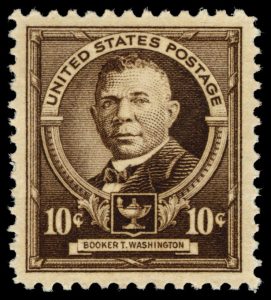
A new era of opportunity for African-American workers began in the 1940s, when U.S. Presidents – spurred on both by civil rights organizations and war-time necessity – began using their powers of office to encourage equal opportunity in the workplace. In 1940, the first postal stamp honoring an African American was issued, portraying Booker T. Washington. In the 1960s the number of African-American employees promoted to supervisory positions grew exponentially, and African Americans were appointed as postmasters of the nation’s three largest Post Offices – New York, Chicago, and Los Angeles. Many African-American postal employees were college students or graduates. Some had law degrees but worked at the Post Office because white law firms would not hire them.
Many African-American postal workers were civil rights activists; some were also prominent community leaders. Three notable examples are John L. LeFlore, a letter carrier from 1922 to 1965, who was active in Mobile, Alabama; Heman Marion Sweatt, a letter carrier from about 1938 to 1947, who was active in Houston, Texas; and Westley W. Law, a letter carrier from about 1948 to the early 1990s, who was active in the civil rights movement in Savannah, Georgia.
|
|
|
|
In 1960 the Post Office Department was the largest single employer of African Americans in the country. In 1961, Equal Employment Opportunity posters were issued for display in all Post Offices, and in 1962, posters were placed on all bulletin boards outlining how to file complaints of discrimination.
An unusual action was taken in Atlanta in response to a grievance lodged by a delivery driver named Alfred H. Ingram in 1962. Investigators from Washington found that systematic discrimination had kept Black workers from promotions, moreover, the Atlanta Postmaster had not taken required steps to desegregate the post offices. The Postmaster was stripped of his ability to promote, post offices were redesigned to desegregate lockers and break rooms, and two Black men were appointed to the formerly all-white promotional board. Ingram's testimony can be read at the archives housed at the Auburn Avenue Research Library.
Today, African Americans comprise about 21 percent of all postal employees, serving at all levels of the United States Postal Service.
Mail Carrier Day, opens a new window is celebrated on February 4.
Postal Worker Day and Postage Stamp Day, opens a new window is celebrated on July 1.
Poster: Postal Stamps Celebrating African Americans, opens a new window, by Carlos A. Diaz. Do you know all of these honorees?
Additional reading
Postal unions: There's Always Work at the Post Office : African American Postal Workers and the Fight for Jobs, Justice, and Equality, by Philip F. Rubio (2010) available at Auburn Avenue Research Library and as an ebook via Galileo, opens a new window
Exhibits of the Smithsonian's National Postal Museum: The Railway Service, opens a new window and Slave-carried Mail, opens a new window
United States Postal Service: Postal history, opens a new window
Book for young people: Delivering Justice, W.W. Law and the Fight for Civil Rights, by Haskins, James (2005) available at several library branches
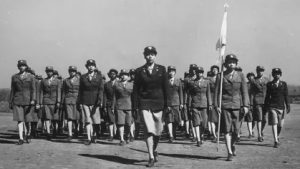
BONUS: The women of the Six Triple Eight
These women were not postal employees, but members of the Women’s Auxiliary Army Corps (WAAC), later known as the Women’s Army Corps (WAC). 43 were from Georgia. After training at Fort Oglethorpe, Georgia, this battalion heroically delivered a backlog of some 17 million pieces of mail to American soldiers in England and France during World War II. The 6888th Battalion was the only all-Black women’s unit to serve overseas and it was awarded the Congressional Gold Medal in 2022.

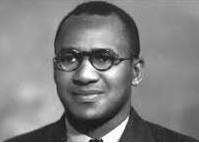
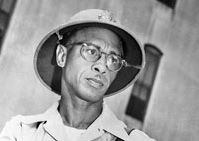
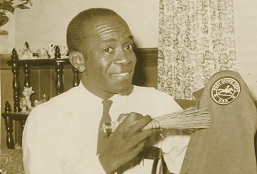

Add a comment to: African Americans and the Postal Service